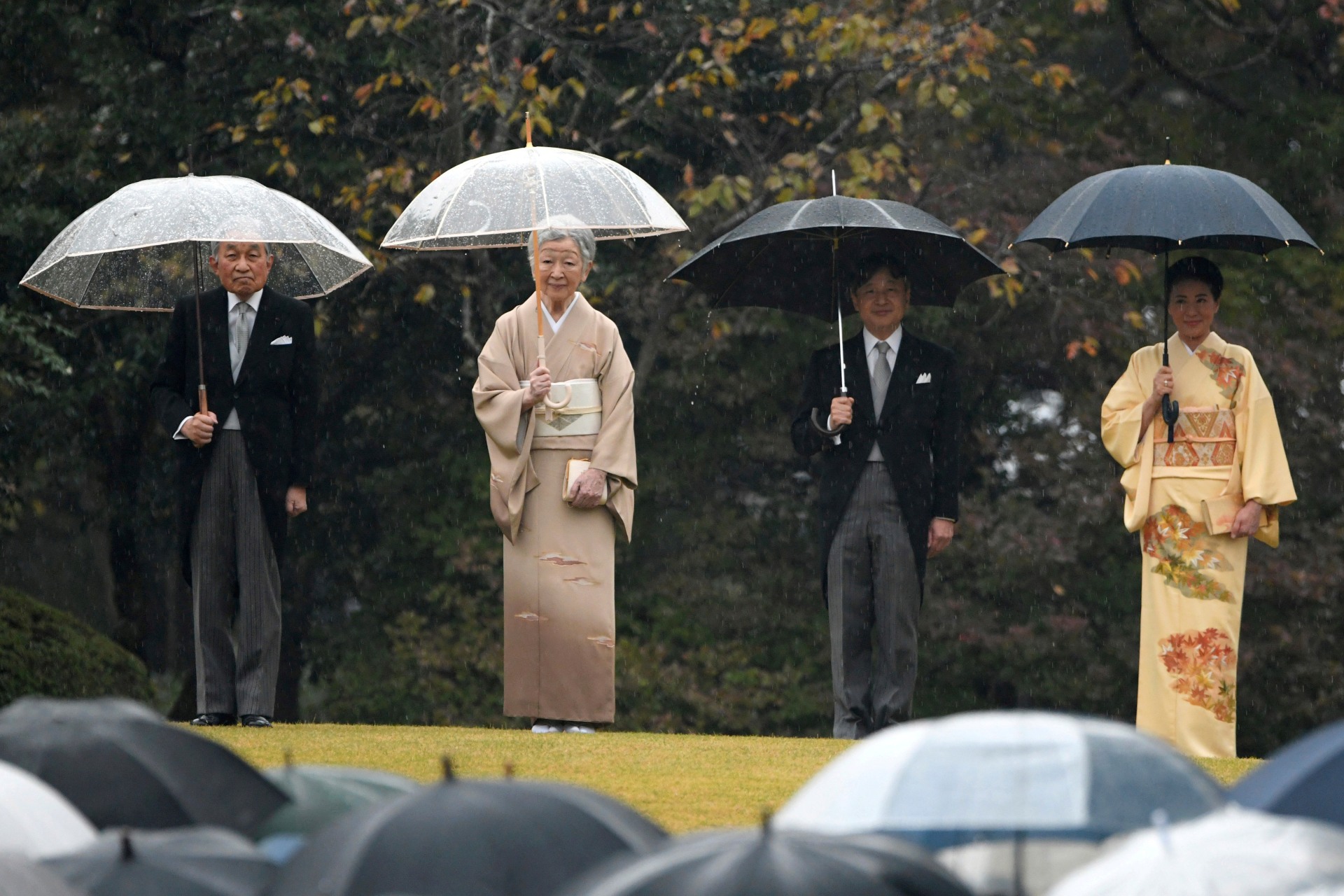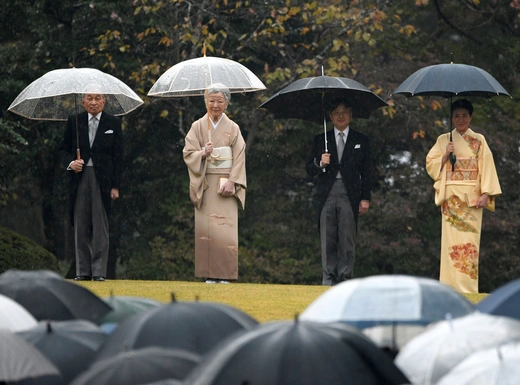The Japanese Emperor’s Role in Foreign Policy
With Emperor Akihito’s historic abdication approaching, here’s a look at his accomplishments and what to expect from the next emperor, Crown Prince Naruhito.

By experts and staff
- Published
By
- Lindsay MaizlandSenior Writer/Editor, Asia
Despite strict limits on his political power, Japan’s emperor serves an important diplomatic role. Emperor Akihito has worked to repair relations with Japan’s former wartime adversaries. Once he takes over the throne in May, Akihito’s son, Crown Prince Naruhito, is expected to promote diversity in Japan and access to clean water worldwide.
The Emperor’s Changing Role
For most of Japan’s history, the emperor was revered as a divine figure and mostly performed a ceremonial role, rarely participating in politics. The 1889 Meiji Constitution granted the emperor significant new authorities, such as commanding the armed forces, but some historians contend that during World War II military leaders wielded absolute power. Emperor Akihito’s father, Hirohito, did however sometimes wear a military uniform, and he was the one to announce his country’s surrender to the Japanese public.
“The Meiji Constitution brought the emperor to the center of political leadership,” says Takako Hikotani, a professor of Japanese politics at Columbia University. “But that’s more of an exception rather than the rule if you look at Japan’s longer history.”
The emperor returned to his ceremonial status after the war. Under General Douglas MacArthur, the U.S.-led Allied occupation spearheaded the drafting of a new constitution in 1947 that stripped the emperor of all political power. This was in line with the United States’ twin goals of democratizing and demilitarizing Japan.
Since then, Japan’s foreign policy has been primarily crafted by the foreign ministry and prime minister, with the emperor acting as an unofficial ambassador who travels abroad and welcomes foreign leaders and diplomats.
Mending Ties With Asian Nations
Akihito, who ascended the throne in 1989, prioritized mending relations with victims of Japan’s wartime aggression and the countries where the most brutal battles were fought. While his visits to those countries, and dozens of others outside of Asia, were choreographed by the foreign ministry, Akihito played a crucial role in reconciliation efforts.

In 1990, during a banquet for the South Korean president in Tokyo, Akihito expressed his “deepest regret” for the Japanese occupation of Korea. Two years later, he visited China and acknowledged the “great suffering” Japanese troops inflicted on Chinese citizens, though he avoided making a direct apology. During a trip to Hawaii in 2009, he laid a wreath at the National Memorial Cemetery of the Pacific, which honors U.S. service members, but did not visit Pearl Harbor. Most recently, in 2016, he visited the Philippines and celebrated the countries’ friendship, while acknowledging Filipino lives lost during the war.
“The fact that Emperor Akihito issued apologies was very unusual,” says Ken Ruoff, director of the Center for Japanese Studies at Portland State University. “He was sort of trying to clean up some of the legacies left from when his father reigned, and he felt very strongly about taking a proactive role.”
Some critics outside of Japan said the emperor’s efforts did not go far enough, however, because his apologies were not direct. Domestically, the emperor has walked the line of remaining apolitical while championing peace abroad.
What to Expect From the New Emperor
Naruhito has said he will “maintain the past emperor’s work,” and analysts expect him to continue meeting with Japan’s neighbors. He has already taken on an ambassadorial role and traveled extensively, including to Malaysia, Thailand, and Vietnam. But some experts say rising geopolitical tensions in the region could hamper any plans of sustaining his father’s reconciliation efforts.
Instead, Naruhito has signaled he will encourage diversity, a contentious issue in Japan. Foreign residents make up just 2 percent of the population, and the country has only reluctantly increased immigration to address labor shortages. Naruhito is also expected to promote access to clean water, a subject he studied at Oxford and has been involved with at the United Nations.
The new emperor’s first big moment in the global spotlight will come in late May, when he is scheduled to host U.S. President Donald J. Trump. Next year he will command the world’s attention during the opening of the 2020 Summer Olympics in Tokyo.